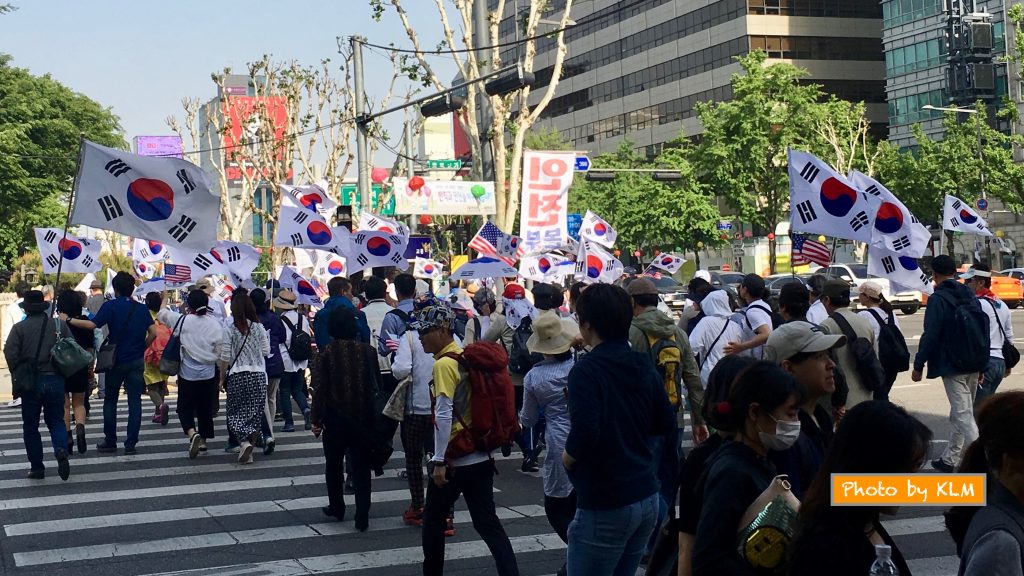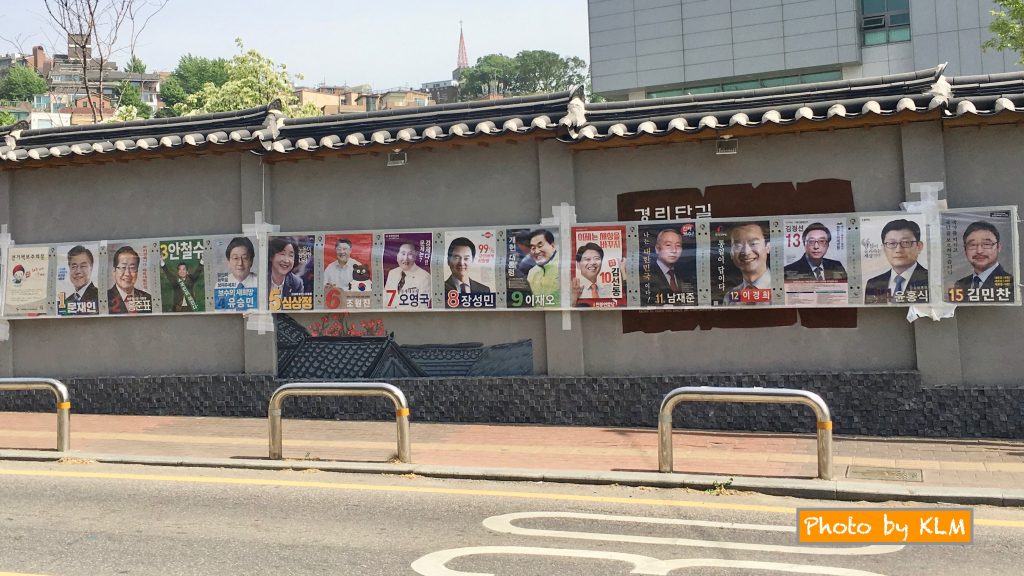The Race to the Presidential Election Posted by Kyung-Hwa on May 9, 2017 in Korean Language, Vocabulary
Election Day is just around the corner, and many South Korean voters are waiting in anticipation to elect their next resident of the 청와대 (Presidential Blue House).

For several months, Korea has faced political crisis and challenges due to 박근혜 (Park Geun-hye) who served the 18th presidential term in South Korea. She was officially removed from her presidency on March 2017 due to the so called “최순실 게이트 (Choi Soon-sil Gate).” Since 대통령 (president) Park was supposed to end her 임기 (term) in 2018, a new 대통령 선거 (presidential election) is scheduled to be held on May 9, 2017.
South Korean citizens who were born before May 10, 1998, are allowed to vote to elect their new 대통령 (president). 사전투표 (early voting) began on May 4th and 5th, and regular voting will be held on May 9th between 오전 6시 (6:00 a.m.) and 오후 8시 (8:00 p.m.).

Although a total of 15 후보자 (candidates) originally registered for the election, now only 13 hopeful contenders will vie for the South Korean Presidency. 문재인 (Moon Jae-In) from the 더불어민주당 (Democratic Party of South Korea) and 안철수 (Ahn Cheol-Soo) from the 국민의당 (People’s Party of South Korea) are the two leading candidates for the South Korean presidency.
문재인 (Moon Jae-In) has been the front runner of the presidential race for months. He raced against 박근혜 and narrowly lost to her in 2012. Due to this, his name and political views are well known to South Korean voters. His party and his political views have appealed to many liberal South Korean voters who are under 50 years old.
안철수 (Ahn Cheol-Soo) is known as a medical doctor, computer programmer, and a co-founder of the 국민의당. An interesting fact about him is that he withdrew from the presidential election in 2012 in order to back his current opponent, 문재인. Although he does not have a strong political background, his political views have appealed to conservative and swing voters in South Korea.
Many of my friends and family members have already voted for their favorite candidate. I often hear them asking around “누구 찍으셨어요? (Who did you vote for?)” or 누구 찍으실 거예요? (Who are you going to vote for?).” Most of their answers were “비밀인데요! (It’s a secret!)” *^^*
Are you also curious to know who the next president of the South Korea will be?
감사합니다! (Thank you!)
***Related Vocabulary***
- 청와대 (Presidential Blue House)
- 박근혜 (Park Geun-hye)
- 최순실 게이트 (Choi Soon-sil Gate)
- 대통령 (president)
- 임기 (term)
- 사전투표 (early voting)
- 오전 6시 (6:00 a.m.)
- 오후 8시 (8:00 p.m.)
- 후보자 (candidates)
- 문재인 (Moon Jae-In)
- 더불어민주당 (Democratic Party of South Korea)
- 안철수 (Ahn Cheol-Soo)
- 국민의당 (People’s Party of South Korea)
- “누구 찍으셨어요? (Who did you vote for?)”
- “누구 찍으실 거예요? (Who are you going to vote for?).”
- “비밀인데요! (It’s a secret!)”

Build vocabulary, practice pronunciation, and more with Transparent Language Online. Available anytime, anywhere, on any device.




Comments:
jeanbirang:
hello i have an interview i want to work in korea can you help me how to introduce myself?
Kyung-Hwa:
@jeanbirang 안녕하세요!
When you meet someone in Korea, bowing is a big part of greetings. In a formal setting, you can bow with your hand in front of you (one hand on top of the other) or to the side of your body (like a position of attention).
I would recommend you to use formal expressions to say hello and nice to meet you. You can refer to my previous post on March 22, 2017.
You can also use this phrase to introduce your name.
I am ____your name______. (저는 ____your name____ 입니다.)
I hope this will help you.
Please let me know if you have any future question.
Good luck with your interview!
Kyung-Hwa